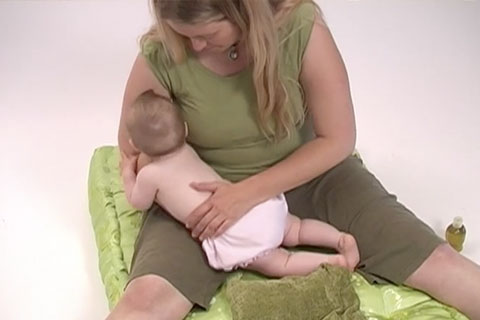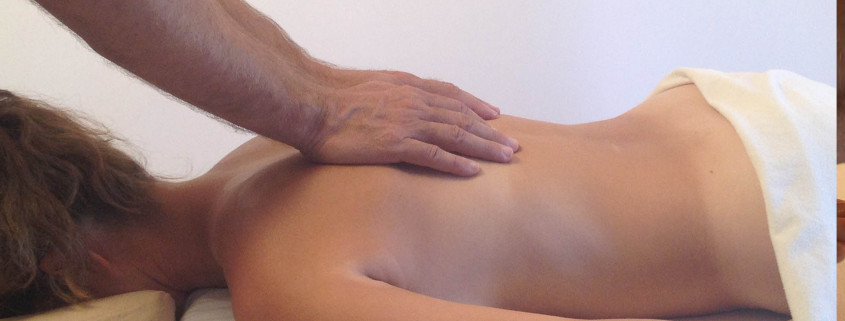Massaging a newborn can lead to a better night’s sleep for child and mother
Previous studies have shown that both parents and infants benefit from massage therapy with oil, especially concerning night-time sleep interruptions. A recent study (Field, Gonzalez, Diego, & Mindell, 2016) noticed that almost all of these studies focused on older infants rather than newborn infants. These researchers wanted to not only study newborn children, but their mothers as well.
The study included 59 mothers and their newborns, who were gathered for the study within 24 hours after giving birth. The participants were then assigned to one of three groups: lotion massage, no lotion massage, or no massage. The mothers in the massage groups were trained to give their infants a 15-minute massage, 15 minutes before bedtime, consisting of: five minutes of moderate-pressure stroking of the infant in a prone position, five minutes of moderate-pressure extensions/flexions of the arms and legs while in a supine position, and a repeat of the five-minute stroking. The massage was done slowly and rhythmically, and the lotion group used a lavender scented massage lotion on the infants.
After one month, the study found that mothers who gave massage with lotion spent the most time sleeping and the highest decrease in problems sleeping. In addition, the mothers had less difficulty falling asleep. Infants from the lotion group got the most sleep out of all three groups, had les difficulty falling asleep, and had decreased night wakings. Interestingly, the no lotion group infants had more frequent night wakings and more difficulty falling asleep than the other two groups.
Parenthood is never an easy task, but it appears that massaging a baby with massage oil/lotion close to bed time has significant effects for both mother and child.
References:
Field, T., Gonzalez, G., Diego, M., & Mindell, J. (2016). Mothers massaging their newborns with lotion versus no lotion enhances mothers’ and newborns’ sleep. Infant Behavior and Development, 45, 31-37. doi:10.1016/j.infbeh.2016.08.004



Follow Us!